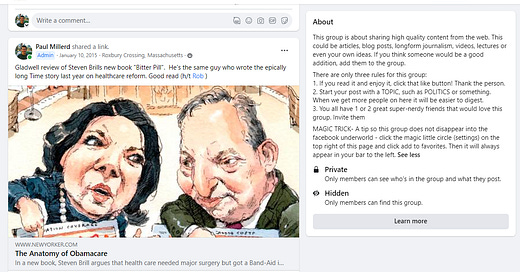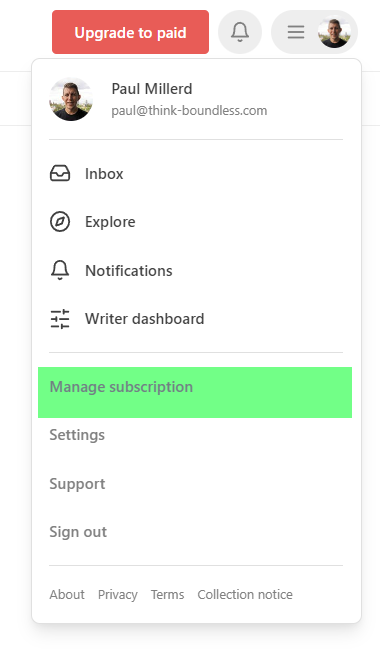I’ve been consolidating some of my stuff online in the past couple of weeks and one of those things is something many of you may not know I had worked on in the past, my weekly #goodreads e-mails. I’ve added it as a section as part of my publication. If you’ve subscribed you’ll automatically receive these (expect sporadic at first) or if you don’t like reading you can edit your settings via the instructions at the bottom.
This creative project far pre-dates my Boundless newsletter and traces itself back to a 2009 Facebook group I created called “media feast” which was an early collection of people sharing longform essays. Eventually, I found myself reading a ton but not as many people to share and connect with as Facebook usage fizzled.
So in 2016, I started something called “Top Reads” on medium and then pivoted it to something called “The Sunday Five” and then Boundless Reads where I’d send five good things every week. I ended up doing about 130+ issues and basically just stopped doing it in 2020 because of the friction of running two separate substacks (you can read some of the old issues here but I still need to figure out why most were imported as locked)
I don’t know if I’ll do a regular schedule but this felt like a nice thing to do to shorten up some of my wildly long expansive Saturday issues.
So without further ado, here are three stories about refactoring work and life that inspired me that seemed to arrive at once:
#1 Quitting To Be A Stay At Home Dad
Loved this from
With gratitude, excitement, doubt, fear, and ultimately conviction, I chose to leave a prestigious firm with a great salary, benefits, and downtime on zoom calls for nonstop negotiations with toddlers, endless snack demands, and mommy daddy & me dance classes.
#2 No More Pointless Meetings!
wrote about a three-part reimagination of her relationship with work and why she decided to take an early retirement package during Covid:#3 Why Sam Cares About Fitness
wrote about how challenges with Type 1 diabetes while younger shaped his relationship with his body, and intuition and how it helped him make sense of his relationship to work. Exercise helped me recapture the vitality of my body, but not my trust in it. Back then, my association with exercise was transactional and external. I did it to perform as an athlete, to attract a girlfriend, and to counteract the damage of my disease. This extrinsic focus and lack of trust in my body made me fragile. Coming out of college, I had no clue how fast everything was about to come crashing down.
If you liked this you can share!
If you only want the regular posts you can edit your subscription here











Excellent shares, thanks Paul!